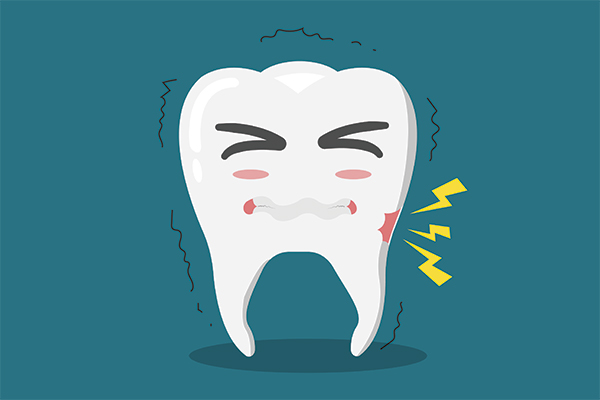How Your Dentist May Treat a Toothache

A toothache can do more than cause you pain and swelling. A painful tooth means a possible infection that can cause fever, earache, and migraine. If left untreated, a toothache can cause serious complications to your health. Recurring tooth pain should be taken seriously and requires the attention of a dental professional.
4 common ways dentists treat a toothache
Dentists treat each case of toothache differently, depending on the cause. Some are caused by a minor gum irritation or something more serious involving the nerves. Minor toothaches usually get better on their own with home remedies and proper oral health practices. Serious cases cannot be resolved by home remedies alone and can only worsen over time. Severe tooth problems need the attention of a dental professional for proper treatment.
The usual diagnosis starts with a visual examination followed by an X-ray if the condition requires it. The dentist may also make a thorough medical history for severe cases. This is usually enough to give the patient an accurate diagnosis. Here are some of the dental treatments for toothache.
Fluoride
Cavities form acid in the mouth that causes tooth decay and creates holes in teeth. Pain is felt when food gets trapped in the hole and when the decayed tooth has an infection and has formed an abscess under the gums. Tooth decays that are just starting and caught early can be treated by cleaning and then using fluoride treatments to repair the tooth’s enamel. Fluoride can help reverse the decay and makes the teeth more resistant to cavities.
Dental filling
If a hole has already formed in the decayed tooth, dentists use a drill to remove the decayed area, then use dental fillings to repair the hole. They use a blue wavelength light to cure and hasten the hardening of the fillings. Then they file and polish the tooth for a correct bite. Dental fillings are a very common way to treat holes in teeth. Some patients experience sensitivity after the procedure, but it normally goes away after a few days.
Root canal
The usual treatment for a tooth nerve infection is a root canal procedure. This is done when the tooth’s pulp, containing nerve and blood vessels, is severely infected. The procedure starts with removing the pulp and cleaning the inside of the tooth, then sealing the hole. The pulp is removed to prevent pain and bacteria from forming. Teeth can still function without the pulp because it is mainly for sensory functions, to sense hot and cold.
Tooth extraction
Extracting a tooth can be a solution to prevent further infections. It is also the most common solution for a crowded mouth, particularly with impacted teeth, requiring surgery. The tooth extraction procedure starts with a local anesthetic to numb the area before extraction. Then using forceps, the tooth is rocked back and forth to remove it from the jawbone.
Preventing tooth pain
A toothache can happen at any time. It comes from a damaged tooth and can vary in severity. This type of issue should be a priority. Ignoring it will only worsen the situation. Proper dental care is key to keeping tooth pain away. Below are some tips on how to prevent tooth pain:
- Flossing every day can remove the plaque and food particles from dental surfaces and between teeth. It can reach the narrow spaces between teeth.
- Brushing every day can remove the food particles and plaque from teeth and gums. It also massages the gums and jawbone, triggering more nutrients to flow into them. Brushing twice a day for two minutes can prevent plaque from hardening.
- Limiting the intake of sugary foods can help prevent bacteria from eating them and then releasing acids that attack the enamel layer of teeth. A high-sugar diet can result in worsening tooth decay. Bacteria can cause damage to the pulp and cause pain.
- Reducing the intake of acidic foods and drinks can reduce enamel erosion. It can also lower the risk for more cavities and toothaches.
- Going to the dentist every six months enables the patient to receive a professional dental cleaning. This involves scaling, electric brushing, and professional flossing. The dentist can also provide fluoride and whitening treatments. These treatments can help keep teeth and gums healthy, especially with regular maintenance.
- Drinking more water can help neutralize the bacterial acids in the mouth.
When to see a dentist
Toothaches are not fatal. But, if it gets severe and causes an infection to travel to other parts of the body, it can pose a serious health threat. See a dentist for any signs of toothache that lasts for more than a few days. If you have a fever, earache, and gum swelling along with the toothache, it is time to visit a dentist.
Request an appointment here: https://www.newyorkdentaloffice.com or call New York Dental Office at 2125483261 for an appointment in our New York office.
Check out what others are saying about our services on Yelp: Toothache in New York, NY.
Recent Posts
The dentist often does a dental checkup and cleaning to look for cavities or other teeth issues. That way, the patient can have a professional cleaning and exam every six months. Many times, patients do need to come in more often than that. That is true if the patient is at risk for an oral…
The next time you go in for a dental checkup, talk to your dentist specifically about brushing. As a child, your parents probably taught you to brush your teeth after every meal. However, they might not have shared much information as to why. After talking to your dentist, you will gain some invaluable insight. By…
You might wonder when you need to have a dental checkup since it is critical to your oral health. Taking care of the teeth is one of the most significant steps in maintaining your health. That is why getting an appointment every six months is a good starting point. Keep reading to learn more about…
Dental checkups are a common way of preventing gum disease and cavities. Not every visit is the same, but knowing what to expect can help you better understand the process. Your dentist will go over your medical history during the appointment. That way, the dentist can think about family conditions that might affect your oral…



